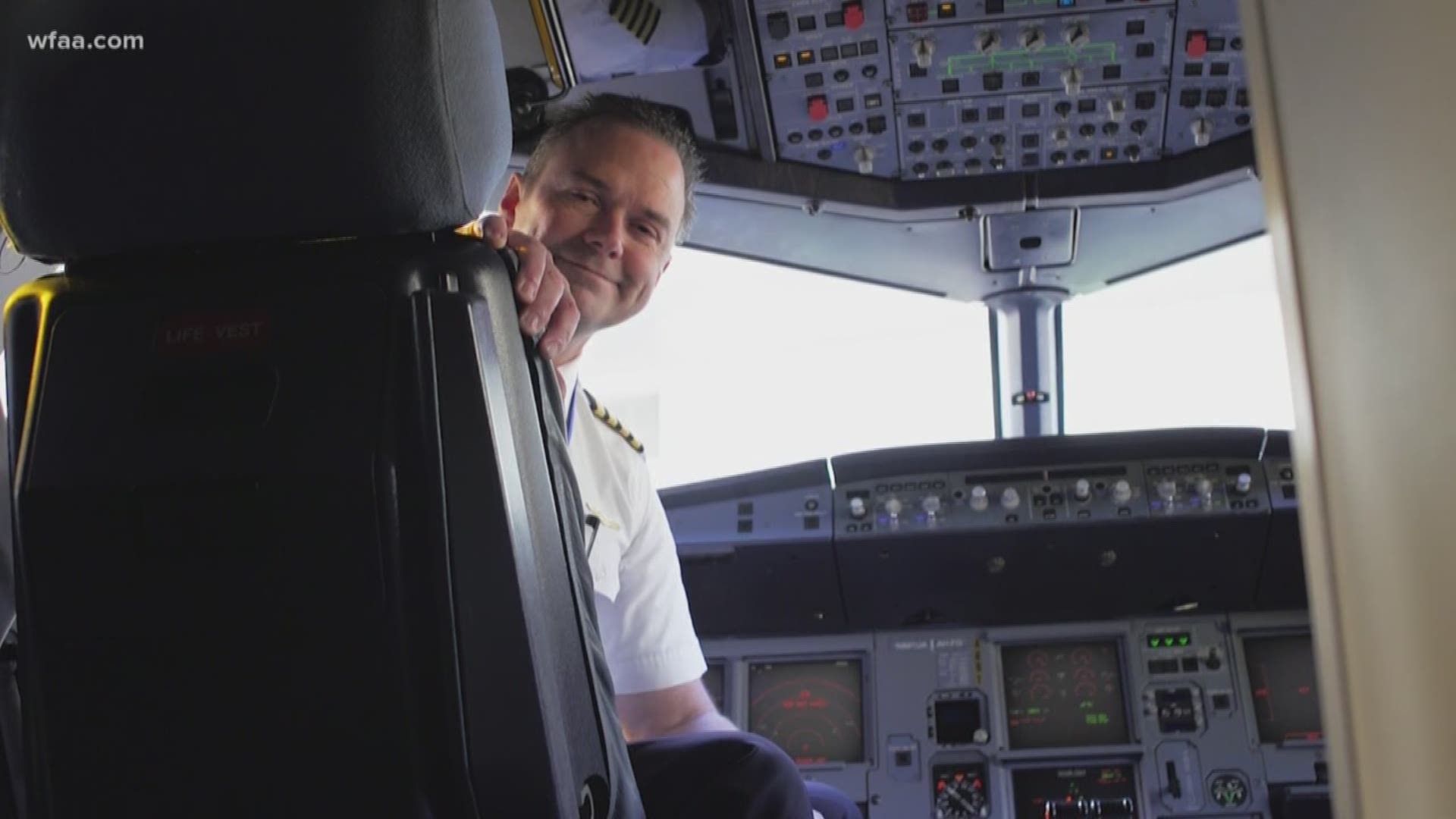DALLAS — For David Whitson, flying planes isn’t just a job. It’s a lifelong passion.
“My grandfather was a pilot in World War II, and we were really close when I was a kid,” Whitson said. “Then, 'Star Wars' came out when I was five years old. All of that made me want to be a pilot.”
By age 16, Whitson was flying airplanes. United Airlines came calling in 1998.
Young and soaring through life, Whitson had reached his dream. Everything seemed picture-perfect.
“Before I got sick, it became normal to me,” Whitson recalled. “But now, I just appreciate every moment.”
A bad headache had stopped Whitson in his tracks one day.
“A couple days later, I had a fever. But then I had a lymph node swell up in my neck,” Whitson said.
A CT scan revealed AML, acute myeloid leukemia.
“Acute means it happens very rapidly, and leukemia is a cancer of the blood, bone-marrow system,” oncologist Brian Berryman explained. “It’s very aggressive and very deadly.”
Whitson was just 44 years old, and a husband and father to kids then ages 11 and 14.
“In a matter of a few days, I went from feeling just normal like I look today to on a ventilator,” Whitson said. “I was so sick.”
Whitson needed a bone marrow transplant, chemotherapy and radiation. He battled infections caused by his weakened immune system.
“When you take on someone else’s immune system, there’s lots of toxicity,” explained Berryman, who is affiliated with Texas Oncology. “Side effects, rejection, infection — he had a little bit of everything.”
For Whitson and his family, life turned upside-down. He was on long-term disability. Grounded, but not defeated.
“Pilots are a different breed,” said Berryman, who treats other pilot patients. “They can’t imagine life without being able to fly again.”
For two years, though the battle was steep, Whitson kept fighting. He eventually climbed his way to remission.
“We want people to live a great life, to be well and to be in remission, but we also want them to be able to get back to living and doing what they love,” Berryman said. “For [David] that was also getting back to work and getting back to flying.”
But, it’s not that easy. When a pilot gets cancer, it’s complicated.
According to the Air Line Pilots Association’s aeromedical office, once treatment is complete, pilots with a history of cancer can be issued a special medical certificate.
But they’re obligated to ground themselves until their case is reviewed by the FAA.
“It’s not like the typical return to work. It takes months,” Berryman explained. “It’s a lot of work on the patient. They have to be physically, mentally, emotionally committed to getting back.”
And Whitson was.
“I was walking four miles a day, I was exercising, I was just trying to get in shape. I did a lot of volunteer work,” Whitson said. “There was a long period of time where I felt like I was healthy enough to come back, but it just took a long time for us to prove to the government that I was healthy [enough] to come back.”
Whitson’s doctors ran multiple tests to prove that he was fit to fly again. And the fighter once again passed. Six months after his employer cleared him to return, the FAA gave Whitson the green light to fly again, too.
“I just appreciate life more every day,” said Whitson, who describes himself as feeling better than ever. “Most people wouldn’t know I was sick if they didn’t know.”
He’s put in a lot of miles, but came away with something special from this journey: a 30,000-foot life perspective.
“There’s little problems and there’s big problems,” Whitson said. “And we shouldn’t make little problems big problems.”
More on WFAA:
- Transformation Tuesday: Losing more than 125 pounds with ballroom dance
- Why is esophageal cancer on the rise?
- Erectile dysfunction affects about half of middle-aged men. This procedure can help
- 1.5 diabetes: Restaurateur's own diagnosis of rare disease inspires new menu
- 'Pedicares': How this North Texas podologist is healing the 'sole' of diabetes patients

